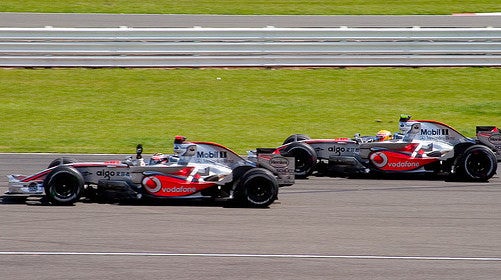In a rare but interesting example of pharma's willingness to look outside its own industry for innovation, GlaxoSmithKline is teaming with Formula 1's McLaren Group in effort to learn from the cutting-edge technology of motor racing.
McLaren, the second most winning team in Formula 1 after Ferrari, “has developed a system which allows team members to remotely monitor every aspect of the car’s performance during a race using wireless technology,” said GSK’s R&D organization. “This enables the team to make regular minor adjustments every few minutes to avoid having to make significant time-consuming interventions.”
“During a racing season, each Formula 1 team can only use a maximum of eight engines across 20 races,” so, as the company explains, “McLaren has developed a unique system of modeling every working component within the car to provide intelligence that can predict potential fatigue and failure.”
Through this unusual partnership, GSK hopes to pick up new tips from McLaren on innovative business operations and high-tech research. The drugmaker believes they can learn from the F1 company about how to enable faster responses to pharma competitor activity and to customer needs, as well as how to improve decision making on inventory management, pricing, and retailer stocking. They hope that the F1 company’s system that allows team members to remotely monitor the car's performance midrace will help GSK start up real-time patient monitoring and treatment adjustment and speed up clinical-trial design.
One project is to learn how to reduce the number of breakdowns in GSK's network of 2,000-plus production lines at 80 factories around the world.
The two companies as well as other business partners will share their ideas and collaborate on all the joint working projects at a new $32 million learning facility to be built as part of the agreement at McLaren’s Headquarters in Woking. The facility will be called the McLaren GSK Centre for Applied Performance and is expected to open by 2013. The partnership will run initially until 2016.






1 Comment